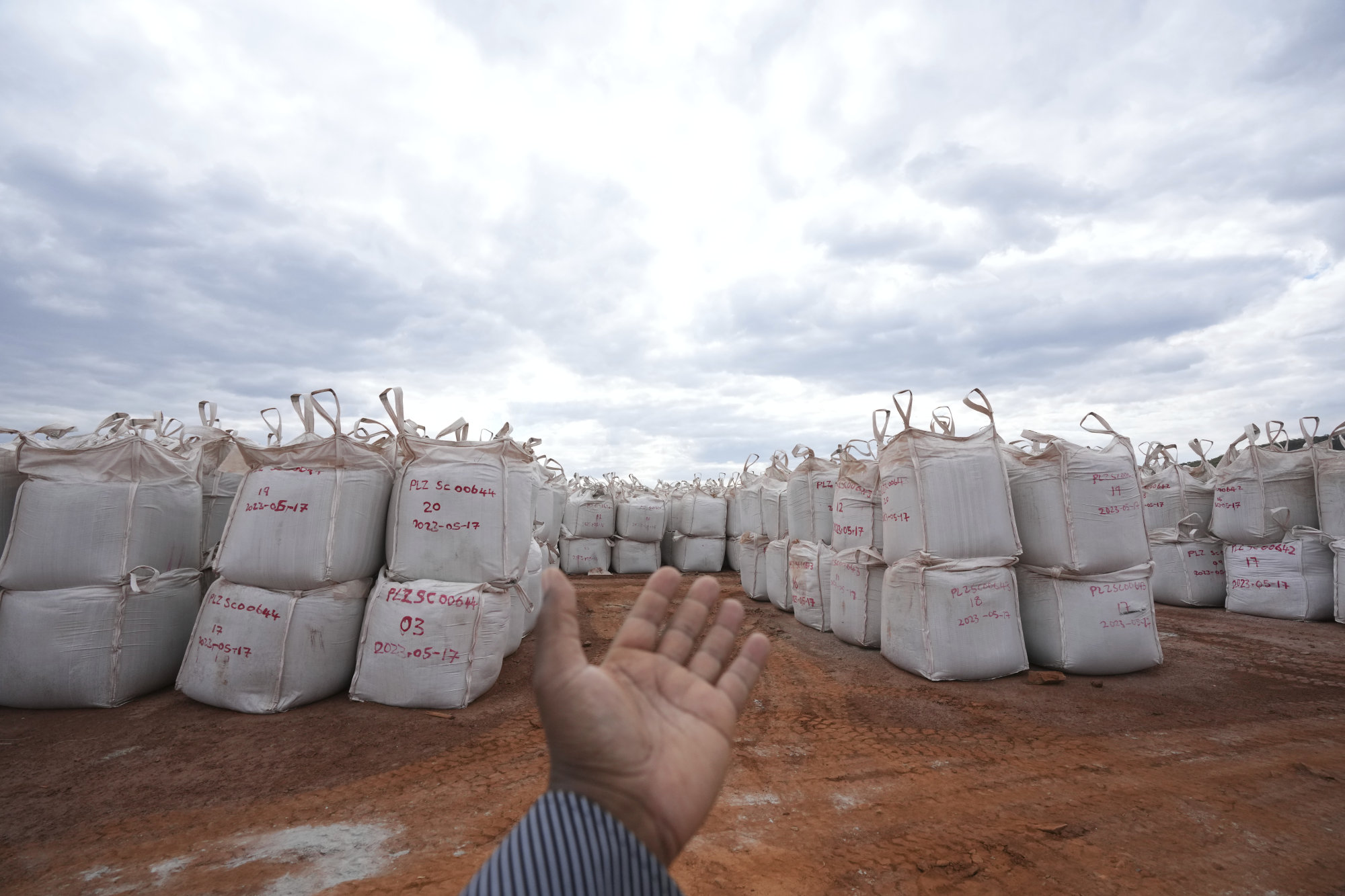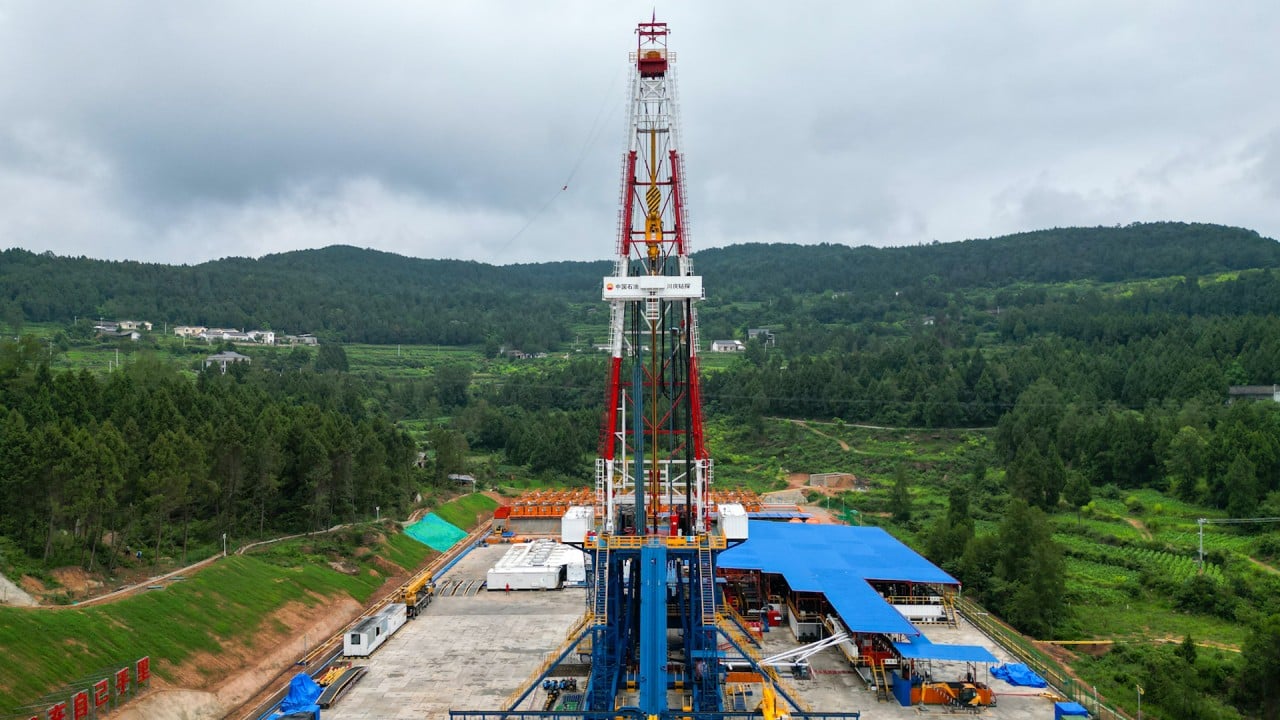
China-Africa trade gets a boost from critical minerals needed for EV battery production
- Two-way trade grew nearly 6 per cent to US$70.86 billion year on year in the first quarter of 2024, Chinese customs data shows
- A boost to China’s imports of critical minerals and metals, combined with higher commodity prices, have helped to power the growth
This was despite a property crisis in China which affected copper demand, with a downturn in copper prices towards the end of 2023.
Meanwhile, China’s exports to Africa increased 4.4 per cent, rising to US$41.4 billion.

Angola, for example, ships most of its oil to China. The DRC, meanwhile, is the world’s largest producer of cobalt, essential in the manufacture of EV batteries and smartphones. It exports the vast majority of this mineral to China.
The country, which is China’s most important African trading partner, mostly sells metals to China, including gold, diamonds, platinum, manganese ore, iron ore, chromium ore and zinc ore, while it buys broadcasting equipment, computers, electric batteries, motor vehicles and electrical transformers.
In the first two months of 2024, Zimbabwe’s trade with China jumped 77.6 per cent year on year, driven by an increase in exports of Zimbabwean products, including lithium and tobacco.
According to the customs data, Zimbabwe’s exports to China rose 255.5 per cent in the period to US$320.54 million. However, it is likely this figure is so high because in the same period in 2023, most of the new lithium processing plants had not started operations.
Gold prices have soared and so this might be part of Africa helping China change its foreign exchange reserves mix.
“Gold prices have soared and so this might be part of Africa helping China change its foreign exchange reserves mix. Oil and copper have risen recently too,” Robertson said.
“Commodities and particularly gold are probably responsible for rising African exports to China.”
Lauren Johnston, associate professor at the University of Sydney’s China Studies Centre, said Africa enjoyed a trade surplus with China during the commodities boom. But now, as commodities prices and currency movements had become more volatile, so too had the trade numbers.
Johnston said while lower commodities prices might not be good news for resource-rich countries, they were useful for countries such as Kenya and Ethiopia that were net commodity importers.
“Cheaper imports would help fuel their growth and, in turn, drive more imports from China,” she said.

But recently, the price of two essential commodities – oil and copper – has been rising, mostly driven by increased demand and geopolitical risks, including Russia’s invasion of Ukraine and the ongoing war in the Middle East. Gold, too, has been gaining in value.
“China has been ramping up gold imports from Africa as the Chinese middle class moves to preserve their wealth amid real estate woes, global geopolitics and tensions around the role of the dollar, and the stock market slump,” Johnston said.
Ovigwe Eguegu, policy analyst at Beijing-based consultancy Development Reimagined, said it was government support measures rolled out in the second half of 2023 to boost business, consumer confidence and private sector investment that saw the Chinese economy get off to a relatively good start this year.
“We may now be seeing the effects of those measures,” Eguegu said.
For instance, Eguegu said in the first quarter of 2023, the average crude oil spot price was around US$76.47 per barrel. But in March this year, the ICE [Intercontinental Exchange] Brent Crude futures reached a six-month high of US$90 per barrel.
“Not only have oil prices increased significantly in 2024, they are projected to maintain the current price level or go even higher due to an extension of Opec+ [Organisation of Petroleum Exporting Countries plus other oil-producing nations] output cuts through June, not to forget escalating tensions in the Middle East and Ukrainian attacks on Russia’s oil infrastructure,” Eguegu said.
Eguegu also said copper prices faced fluctuations in 2023, starting strong due to easing Covid-19 restrictions in China but then being hit with challenges later in the year due to a prolonged property crisis and weak local demand.
But, he said copper prices were expected to increase again this year due to supply disruptions at large mines such as Central America’s Cobre Panama as well as increasing demand from sectors in the energy transition.
“While the Chinese construction and real estate sector is undergoing a correction, the manufacture of EV and other green energy products are good,” Eguegu said. “Thus, there is likely to be an increase in the value and volume of copper exports from Zambia, DRC and other major exporters to China.”
Similarly, he said that from the Chinese export side, the competitiveness of Chinese finished goods, like EVs, electronics and solar panels, remains strong, which means market dynamics also favour African demand for Chinese products for the foreseeable future.
“Overall, since much of Africa’s exports to China are commodities, and with the projections of the commodity markets, it is within reason to expect good China-Africa trade figures,” Eguegu said.


